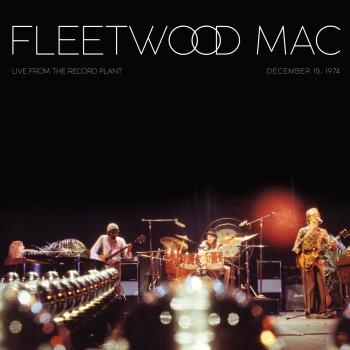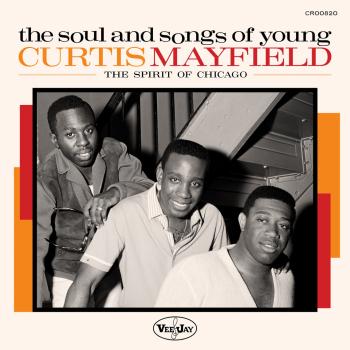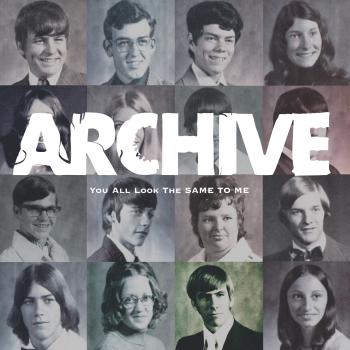
Sunrise Masabumi Kikuchi Trio
Album info
Album-Release:
2012
HRA-Release:
02.04.2012
Label: ECM
Genre: Jazz
Subgenre: Contemporary Jazz
Artist: Masabumi Kikuchi Trio
Composer: Masabumi Kikuchi, Paul Motian, Thomas Morgan
Album including Album cover Booklet (PDF)
I`m sorry!
Dear HIGHRESAUDIO Visitor,
due to territorial constraints and also different releases dates in each country you currently can`t purchase this album. We are updating our release dates twice a week. So, please feel free to check from time-to-time, if the album is available for your country.
We suggest, that you bookmark the album and use our Short List function.
Thank you for your understanding and patience.
Yours sincerely, HIGHRESAUDIO
- 1 Ballad 1 05:38
- 2 New Day 04:48
- 3 Short Stuff 02:11
- 4 So What Variations 05:32
- 5 Ballad 2 07:16
- 6 Sunrise 05:52
- 7 Sticks and Cymbals 06:18
- 8 End of Day 04:50
- 9 Uptempo 04:11
- 10 Last Ballad 05:20
Info for Sunrise
Das ECM-Debüt von Masabumi Kikuchi war gleichzeitig die letzte Session des großen Paul Motian. Motian und Kikuchi waren seit vielen Jahren befreundet und Paul verstand die Eigenheiten und den individuellen Charme des sehr persönlichen Stils des japanischen Pianisten vielleicht besser als irgend jemand sonst. Das durch den Bassisten Thomas Morgan komplettierte Trio entwickelt hier die in freiem Rubato-Spiel gestaltete Ballade zu einer ganz speziellen Kunstform. Sunrise wirkt gleichzeitig frisch und weise, strahlt etwas von jener speziellen emotionalen Gestimmtheit aus, die man gelegentlich mit Spätwerken assoziiert: Jenseits der Ebene der 'Technik', jenseits jeglicher Neigung, Eindruck zu schinden, begeben sich die immer noch innovativen Altmeister Kikuchi und Motian auf parallele, poetische Forschungsreisen mit dem Ziel der reinen Essenz.
'Wie in extremer Zeitlupe nähert sich diese Musik. Feine, aber kantige Klavierklänge, die ganz langsam herbeischweben und immer wieder fast innehalten; dahinter ein leises Klappern und Flattern vom Schlagzeug, dessen freie Rhythmen sich sacht in die Luft auffächern – und dazu, als sollten sie unerwartete Erdenschwere herstellen, vereinzelte Töne vom Kontrabass, die schwer zu Boden zu fallen scheinen. So klingt es, wenn das Trio des Japaners Masabumi Kikuchi spielt. […] Keiner klingt wie Kikuchi, keiner inszeniert seine Musik so wie er. Ihm zuzuhören ist ein unvergleichliches Erlebnis. […]
Und die Musik dieser drei ungleichen und doch unendlich harmonischen Partner auf „Sunrise“ hat das Zeug zu einer Momentaufnahme von zeitlosem Reiz.' (Roland Spiegel, BR-Klassik)
Masabumi Kikuchi, Klavier
Thomas Morgan, Kontrabass
Paul Motian, Schlagzeug
Masabumi Kikuchi
Born 1939 in Tokyo, Masabumi Kikuchi played with Lionel Hampton and Sonny Rollins while still a teenager, and made his recording debut in the early 1960s with Toshiko Akiyoshi and Charlie Mariano. In the 1970s he collaborated with Gil Evans and Elvin Jones and led his own groups, in both acoustic and electric modes, variously drawing influence from Miles Davis and Stockhausen, from Duke Ellington and Ligeti and Takemitsu. Kikuchi was amongst a small group of musicians with whom Miles Davis would confer in his post-Agharta retirement period, and he contributed to a still-unissued session with Miles, Larry Coryell and others, in 1978. Several of Kikuchi’s 1980s recordings were devoted to the synthesizer, but by the 1990s he was again emphasizing acoustic piano, founding the group Tethered Moon with Gary Peacock and Paul Motian. Motian, in particular, encouraged Kikuchi’s experimental tendencies, and was pleased to feature Masabumi Kikuchi in his own groups.
Motian was also on hand for Kikuchi’s sole ECM studio album, Sunrise, as was bassist Thomas Morgan. All About Jazz described the album as “sparse, abstract and forged on the spur of the moment, but with a Zen-like beauty: atonal, sublime and powerful.” Jazziz noted the album’s emotional undercurrents: “For all its freedom and space, the music is filled with tension, as if Kikuchi were carrying some great burden through his search for enlightenment.”
The release of Sunrise in 2012 provided a context for Kikuchi to play in Japan again, where the music of Black Orpheus was recorded in October of that year, in the responsive acoustics of the Tokyo Bunka Kaikan Recital Hall, a space originally designed for chamber music.
Back in his New York loft, a home base since the 1970s, Masabumi Kikuchi continued to work on the music. He withdrew from public performance but, with ECM’s support, made numerous recordings at home, both of solo piano meditations and group improvisations with a circle of younger associates including Thomas Morgan, guitarist Todd Neufeld, and saxophonist Michaël Attias, who helped him in the quest for new shapes and forms in spontaneous music-making.
He died on July 6, 2015.
Booklet for Sunrise










